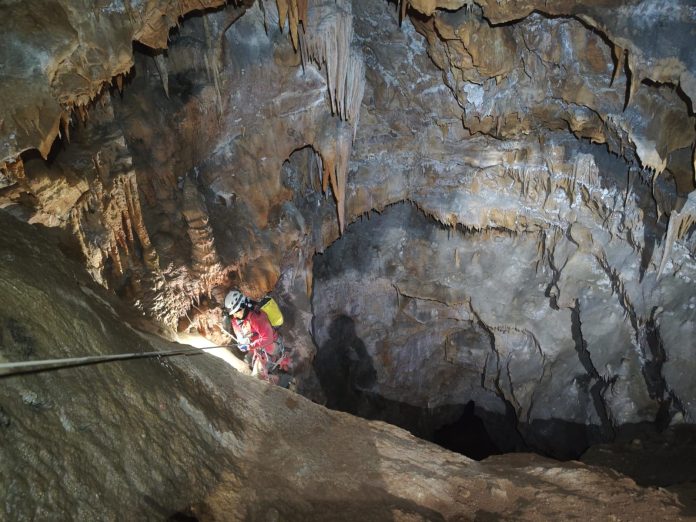by Alessandra Ressa
Scientists, researchers, and caving enthusiasts from across Italy and neighboring Slovenia gathered this weekend in the border city of Gorizia for “Speleo2025: Waters and Caves Without Borders – Scientific Culture and the Valorization of Speleological Heritage.” The two-day conference explored the scientific, environmental, and cultural significance of caves, with particular focus on the karst landscapes of the region.
Held at the Auditorium della Cultura Friulana, the event was part of the official program for GO!2025 – European Capital of Culture, reflecting the yearlong emphasis on cross-border cooperation between Gorizia and Nova Gorica.
Organized by the Regional Speleological Federation of Friuli Venezia Giulia, in collaboration with the Geological Service of the Friuli Venezia Giulia Region and the Municipality of Gorizia, the conference featured presentations and discussions on the latest developments in underground water systems, karst hydrogeology, and cave biodiversity.
A key moment of the gathering was the inauguration of a new multimedia exhibition, “Caves Between Exploration and Research: The Speleological Heritage of Friuli Venezia Giulia.” The exhibit traces the evolution of speleology in the region, from early cave explorers to the modern digital cave registry. It also delves into the complex relationship between humans and the underground world, highlighting advances in geology, subterranean ecosystems, and exploration techniques.
The exhibition will remain open to the public until July 13, with visiting hours from Tuesday to Friday, 4 p.m. to 7 p.m., and on weekends from 10 a.m. to 1 p.m. and 4 p.m. to 7 p.m.
More than 150 participants from Friuli Venezia Giulia, Veneto, Lombardy, and Slovenia attended the event, which emphasized the cross-disciplinary nature of speleological studies and their growing importance in understanding both regional heritage and environmental sustainability.
As underground ecosystems face increasing pressure from climate change and human activity, events like Speleo2025 aim to bring greater public awareness to the hidden world beneath our feet—and the international collaborations required to protect it.





























